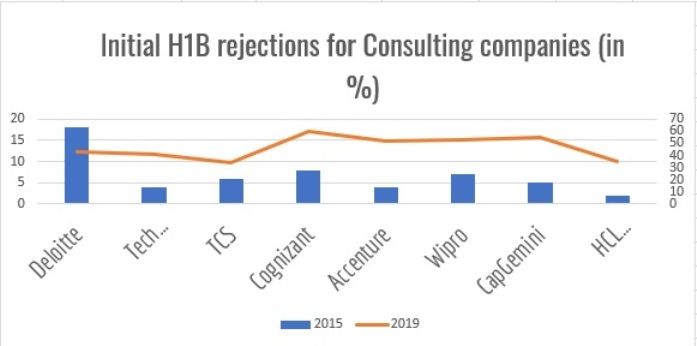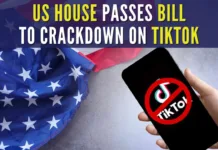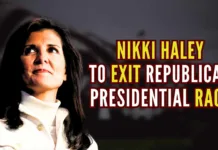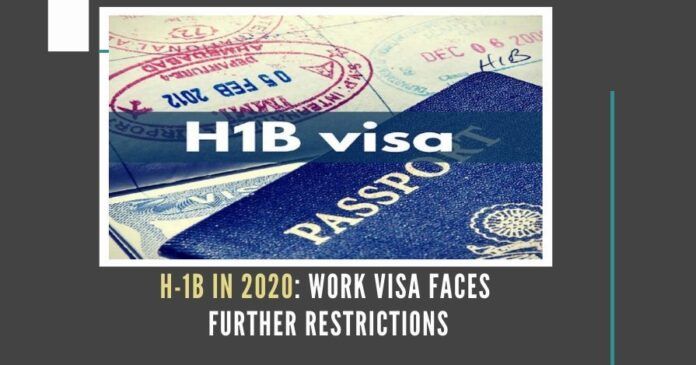
It’s been a year of big changes for the H-1B visa—and things aren’t done yet. The next 12 months could fundamentally change everything about the visa, from who can obtain one to which types of companies will face higher rejection rates.
If current trends hold, the Trump administration will continue to tighten the screws on the H-1B application process. That’s great news for those who believe that tech and consulting companies regularly abuse the visa in order to import cheaper labor. It could also prove very bad for those companies that depend on the visa to secure what they view as highly specialized talent.
The approval rate of H-1B visas has dipped noticeably since Trump came into office. It seems likely that this trend will continue into 2020
Between 2015 and 2019, the denial rate for H-1B petitions for initial employment has risen at many companies, according to a handy breakdown (PDF) by the National Foundation for American Policy (which analyzed data from U.S. Citizenship and Immigration Services (USCIS)). Within big tech, the percentage increases are small but nonetheless noticeable
Denial Rates for Initial H-1B Petitions (in %)
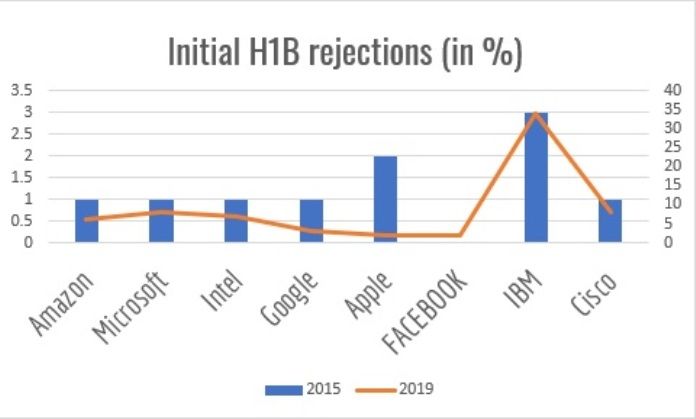
At consulting and business-services firms, though, the denial rate has spiked even more precipitously over the four-year period. “At least 12 companies that provide professional or IT services to other U.S. companies, including Accenture, Capgemini and others, had denial rates over 30 percent through the first three quarters of FY 2019,” read the National Foundation for American Policy’s report on the matter. “Most of these companies had denial rates between 2 percent and 7 percent as recently as FY 2015.”
(If you look at IBM’s spike in denials in the first visualization, you can surmise that’s due to its business-services operations, as well.)
It seems unlikely that the USCIS crackdown will abate in 2020. In a statement to Mother Jones, a USCIS spokesman framed the agency’s recent moves as “designed to protect U.S. workers, cut down on frivolous petitions, strengthen the transparency of employment-based visa programs, and improve the integrity of the immigration petition process.”
That crackdown has taken many forms above and beyond rejecting initial H-1B petitions. For example, USCIS has pushed to end H-4 EAD, which allows the spouses of H-1B visa holders to work; its case for cancelation is currently winding its way through the court system. USCIS has also pushed a $10 registration fee for H-1B applications, and the companies petitioning for the visas are being subjected to more intensive questions about what exactly these workers will do if approved.
Overall, the approval rate of H-1B visas has dipped noticeably since Trump came into office. It seems likely that this trend will continue into 2020.
H-1B Approval Rate
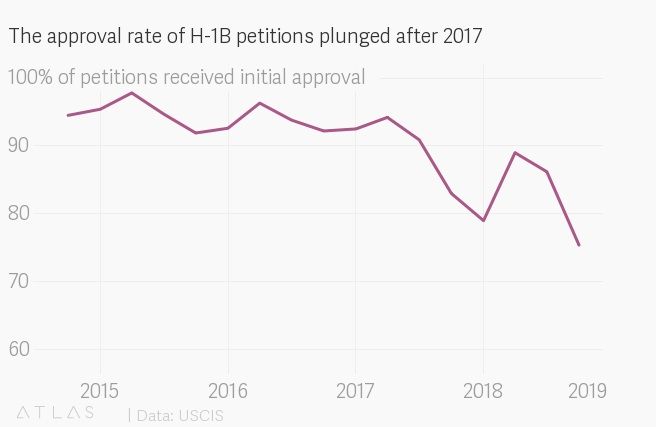
H-1B Lawsuit City
In response to the crackdown, many outsourcing and consulting firms have begun firing off lawsuits against the federal government. Between 2017 and 2019, some 100 lawsuits have been filed, according to a database of cases assembled by Mother Jones in conjunction with professor Stephen Yale-Loehr of Cornell Law School.
“Lots of people are unhappy with how the agency is adjudicating the applications and they feel like they have to turn to the courts for fair adjudication because the agency is failing them,” Jill Family, an immigration law professor at Widener University, recently told Mother Jones. “The administration is trying to build all kinds of walls. It’s not just physical walls across the border. It seems like the administration’s plan is to throw as many roadblocks and then see what the courts do with it.”
Whatever the ultimate outcome of those lawsuits, what’s clear is that, in 2020 and beyond, USCIS and the Trump administration are going to ask sponsors for a lot more evidence and paperwork with regard to their H-1B petitions. On top of that, the focus on applicants’ education will only intensify. “New policies show a preference for advanced degree (master’s and higher) holders,” Russ Leimer, co-founder of CitizenPath.com, recently told Dice. “Employers need to carefully analyze the need to pursue candidates with only a bachelor’s degree, making sure they will qualify. H-1B hopefuls may consider continuing their U.S. education in pursuit of an advanced degree.”
With rejections and reviews only likely to increase, only true specialists have the best chance of making through the H-1B process. Of course, that’s how the system was intended to work in the first place.
Here is the complete article:
H 1B Denial Rates Analysis of FY 2019 Numbers.nfap Policy Brief.october 2019 by PGurus on Scribd
- Supreme Court rejects plea to tally all VVPAT slips with EVM votes; says ‘no going back to paper ballot’ - April 26, 2024
- US report citing human rights violations is deeply biased: India - April 25, 2024
- Kotak Mahindra Bank shares tank 13%. Market Cap erodes by Rs.37,721 cr post-RBI action - April 25, 2024

